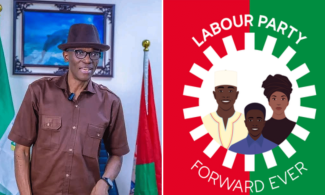The Labour Party (LP), a cornerstone of social democracy in Nigeria, stands at a pivotal juncture marked by internal conflicts and political challenges. The recent developments within the LP have stirred significant attention, shedding light on the hurdles it faces as it strives to uphold its principles of social justice and unity.
The Leadership Quandary
Post the loss of Alhaji Abdulkadir Abdulsalam in 2020, the LP plunged into a leadership crisis. The ensuing battle for supremacy saw Barrister Julius Abure stepping up as the new National Chairman in 2021, amidst objections from former Deputy National Chairman, Calistus Okafor. This leadership tussle reflects the internal discord that threatens to undermine the party’s cohesion and effectiveness.
The Peter Obi Phenomenon
Peter Obi’s transition to the Labour Party in 2022, following his departure from the People’s Democratic Party (PDP), marked a watershed moment for the LP. As a former Governor of Anambra State with a reputable track record, Obi’s entry was met with enthusiasm and viewed as a beacon of hope for revitalizing the party. His presidential candidacy in the 2023 elections symbolizes the LP’s aspirations for national reform and progress. However, this move has also amplified the expectations placed upon the party, challenging it to navigate the complexities of Nigerian politics with renewed vigor and strategy.

Solidarity from Trade Unions
In the lead-up to the 2023 general elections, the Labour Party garnered pivotal support from the Nigeria Labour Congress (NLC) and the Trade Union Congress of Nigeria. This backing from the trade union movement could significantly influence the political dynamics, offering the LP an essential boost in its campaign efforts. The unions’ endorsement underscores the alignment of their objectives with the LP’s vision, potentially rallying a broader base of support for Peter Obi’s presidential bid.
The Path Forward
As the Labour Party contends with its present challenges, the road ahead necessitates a strategic recalibration. The party’s internal dynamics, coupled with the pressures of a competitive political environment, demand a unified approach to overcome obstacles. The LP’s commitment to its foundational principles of equity, social justice, and national unity serves as its guiding light. However, to translate these ideals into tangible outcomes, the LP must bridge its internal divisions, harness the momentum generated by Peter Obi’s candidacy, and articulate a compelling vision that resonates with the Nigerian electorate.
The Labour Party’s journey through this period of political turmoil is more than a test of endurance; it is an opportunity to reaffirm its relevance and capacity to contribute meaningfully to Nigeria’s democratic landscape. As the party seeks to consolidate its base and navigate the intricacies of the upcoming electoral battles, its ability to present a cohesive and principled stance will be critical in shaping its future and, by extension, that of Nigeria.



